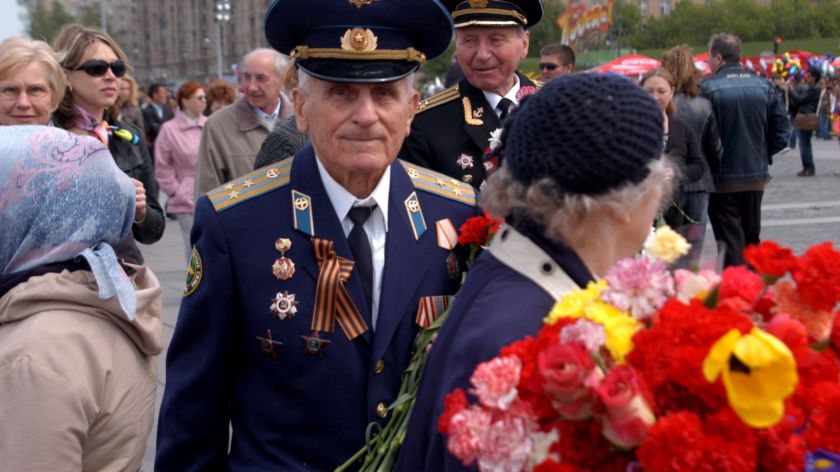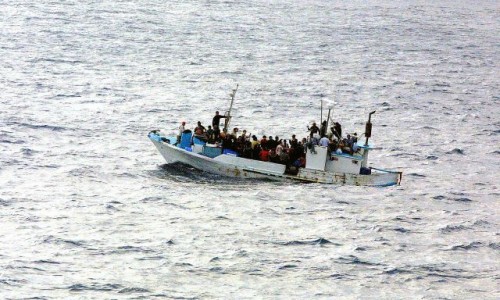‘Why don’t we celebrate this in Germany?’
-
 Veterans during Victory Day in Moscow. Photo: CC
Veterans during Victory Day in Moscow. Photo: CC
How do international students on campus experience ‘our’ 4 May commemoration? And how do they celebrate the liberation? Vox asked students from Russia, Germany and Japan.
Lena (20, Germany): ‘I hope it’s OK if I participate’
‘Yes, I know that you remember the end of the war today and celebrate the liberation tomorrow. I’m planning to go to Arnhem with friends tomorrow to celebrate. I hope that’s OK. In Germany, politicians lay wreaths on war monuments on 1 May. But that’s by invitation only; it’s not a day for everyone. That’s a pity. I wonder why we don’t have a day in Germany to celebrate the end of that terrible time. When I think of liberation, I think about the end of Hitler’s dictatorship, about all the Jews who died, and I hope that we will never forget this. From history lessons at school, I always got the feeling that I should apologise for being a German. You’re often reminded of it, like when I was once asked in America: ‘What do you do on Hitler’s birthday?’’
Lena prefers not to give a surname or programme
Olga (22, Russia): ‘The power that love can give’
‘I didn’t know anything about this liberation day until you asked me about it. I’m not going to do anything special today. The comparable day for us is 9 May, when Russia celebrates the end of the Second World War. That lives on because all of us have ancestors who died in the war. I remember the songs and poems about the war I learned in school in the days around 9 May. Next week in Moscow, there will be a big, beautiful parade. What does liberation day mean to me? That every person has the right to live in peace. And I think about the power that love can give.’
Olga Pushchina studies Business Administration
Aomi (24, Japan): ‘Liberation doesn’t evoke much for me’
‘I was in Wageningen last year, so I now know what these days stand for. No, I’m not going to do anything special today or tomorrow. In Japan, we commemorate a lot about the war, especially in August when the victims of Hiroshima and Nagasaki are remembered. In addition, in Tokyo on 15 August, there is a massive commemoration of all the victims of the war in the Pacific. There are also all sorts of local commemorations in cities that were bombed. The word ‘liberation’ doesn’t evoke any special meaning for me. After all, Japan was not the liberated country, but a country that occupied other nations. Liberation is probably much more important to people in those countries.’
Aomi Mochida studies History



Mark schreef op 11 mei 2017 om 20:01
Liebe Lena,es sind nicht nur Juden umgekommen.Es waren vor allem Buerger der UdSSR und Polen .